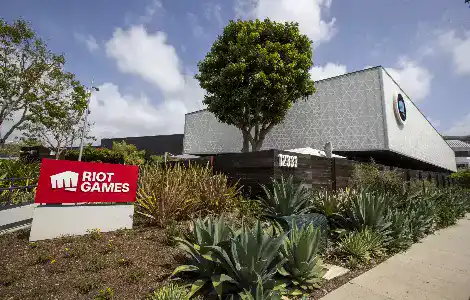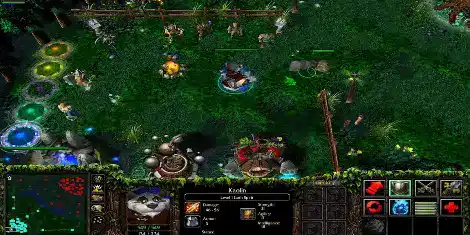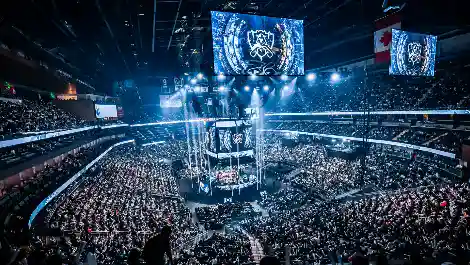League of Legends: How Riot Games Created the Biggest Game in History
The gaming industry is filled with titans, but few titles have achieved the level of success and cultural impact as League of Legends. Developed by Riot Games, this multiplayer online battle arena game has grown from its humble beginnings into a global phenomenon, captivating millions of players worldwide. Today, we’re taking a deep dive into the origins of League of Legends and how it became the biggest online game in history.
The Birth of Riot Games
|
"League of Legends" wasn't Riot Games' first venture into the gaming world. Brandon Beck and Marc Merrill founded the Los Angeles-based company in September 2006. The duo shared a passion for online gaming and saw an opportunity to create a player-centric company that would revolutionize the industry. Riot Games' initial focus was on developing games that prioritized player experience and community engagement. With the dream of boosting players’s ideas and turning them into a real game, from gamers, for gamers, Beck and Merrill got to work. |
 |
Riot Games' first major project was "Demacia," a game that would eventually evolve into League of Legends. Inspired by the popular Warcraft III custom map Defense of the Ancients, Beck and Merrill envisioned a game that combined the strategic depth of real-time strategy games with the intense, team-based competition found in multiplayer games.
DotA Allstars
To understand the origins of League of Legends, one must acknowledge the influence of DotA Allstars. This custom map for Warcraft III gained immense popularity, attracting a dedicated player base. DotA Allstars laid the groundwork for the MOBA genre, featuring teams of heroes battling each other on a symmetrical map with three lanes.
|
Riot Games recognized the potential to expand on this concept and introduce innovations that would set their game apart. Rather than directly copying DotA, Riot Games aimed to create a fresh and accessible experience, refining the mechanics and introducing a wealth of new champions, items, and features. Nowadays, there's a huge gap sepparating LoL and Dota 2, with Riot's title leading the MOBA market. |
 |
One of the defining features of "League of Legends" is its diverse cast of champions. Riot Games sought to create a roster that appealed to a wide range of players, each with distinct abilities and playstyles. Riot Games designed champions to be powerful in combat while also giving them rich backstories and unique personalities, boosting the quality of the game's lore and laying the seeds for fans to stay engaged over time.
The introduction of the champion rotation system allowed players to try out different characters each week, encouraging experimentation and helping them find champions that suited their preferences. This commitment to diversity and ongoing champion releases has been a cornerstone of "League of Legends," ensuring the game remains dynamic and engaging for both new and seasoned players.
Is League of Legends free-to-play?
At a time when many games followed a traditional pay-to-play model, Riot Games chose a bold approach, making "League of Legends" free to play. The decision to generate revenue through microtransactions for cosmetic items, such as skins and emotes, was groundbreaking. This free-to-play model democratized access to the game, allowing a massive player base to join without any upfront cost.
This strategic choice not only attracted a vast audience but also laid the foundation for the emergence of esports around League of Legends. The large player base created a competitive environment that naturally evolved into organized leagues and tournaments, fostering the growth of professional gaming on a global scale.
To this day, League of Legends still has no features where you can pay to improve your in-game performance or power, making it 100% skill-based.
League of Legends Brought Esports to the Big Stages
As League of Legends gained popularity, Riot Games recognized the potential for competitive play. The first official League of Legends World Championship took place in 2010, marking the beginning of the game's journey into the realm of esports.
 |
Since then, the championship has become an annual event, drawing millions of viewers and offering substantial prize pools. This event had such an impact on the gaming world that it drew in millions of dollars in investment, causing the gaming industry to evolve faster than ever over the next few years. Thousands of gamers found their chance to become professional League of Legends players either by coaching, selling League of Legends elo boost services, or becoming Esports athletes. |
The success of the World Championship paved the way for the establishment of regional leagues, such as the League of Legends Pro League (LPL) in China, the League of Legends Championship Series (LCS) in North America, and the League of Legends European Championship (LEC) in Europe. These leagues further elevated the competitive scene, turning professional players into esports stars and providing fans with year-round entertainment.
League of Legends has come a long way from its origins as a project inspired by DotA Allstars. Riot Games has built an empire on their dream of developing a game tailored for gamers, by gamers. To this day, innovation and community engagement have transformed LoL into a global cultural phenomenon that continues to shape the gaming industry and capture the hearts of millions of players worldwide, cementing its place as one of the most influential projects in entertainment industry history.

GG Boost, the Best Elo Boosting Experience!
 Deutsch
Deutsch  Français
Français  Español
Español  Português
Português